Expansion of the Past: Story in Games
Before I get into the story of game stories, let’s discuss a bit about the backstory of my own story.
I’m going for my major in creative writing, which requires literary criticism. And while any smartass can criticize a work of art, lit crit is a more in-depth analysis of what makes a text work and why. If you’ve spent any time in high school literature, you’ve covered it, whether you know it or not.
This won’t be a crash course on how to analyze world-class novels or film or anything, for that matter. I just want to give my two cents about story as it applies to games.
Linearity: walking the line
Any medium that tells a story must, in some sense, be linear. All stories have a beginning, middle, and end. Starting with the oral traditions of our ancestors to the high-octane action campaigns of Battlefield and Call of Duty and the nigh-infinite possibilities of open worlds like Skyrim, Dark Souls and Batman: Arkham City, no world is void of tales to tell. The difference between mediums is only in how that story is told. Arguments of “too much linearity” are certainly valid ones, but even games where the entire experience is a straight line (Final Fantasy XIII) have merit, because their whole point is essentially the story.
The problem of linearity, I think, comes down to a question of optional sidequests. Unlike literature or film, where it is impossible to tread off the beaten path of the script or text, such things are expected and embraced in videogames. Of course, the reasoning is different depending on genre. For role-playing games, it opens up possibilities to level up or collecting cool stuff. For a shooter, it might make clearer some part of the worldly mythos, or it might just be another way to squeeze in that last damn achievement.
The problem I saw with FFXIII (among its copious others), is that it offered no side quests for all the time I put in it, around 15 hours or so. Focused so closely on building up the characters and the story, the game forgot that one of the chief loves for RPG players is the ability to explore the world they find themselves in. I could certainly make the argument that any Call of Duty or Battlefield campaign is just as linear, and I think I’d be right in that assumption. The expectation we have on entering into an FPS single player varies widely from the one we walk into an RPG with. It is the developer’s understanding of that expectation that must drive their design.
History teaches still
Story in games, regardless of how much we want to make it not so, is dependent on those stories that came before it, and linearity is one holdover from these earlier mediums. But another are the stories themselves. Any writer or literary critic of worth will tell you that no story has not already been told; there are no truly “original” ideas. What is original, and what keeps us coming back to books and movies and games is the way in which those stories are told.
Indeed, even this blog is nothing really “new.” Rather, WiNG decided he wasn’t satisfied with reporting on the news like everybody else. There are tons of sites far larger than this who already do that quite well, and others that don’t. Instead, he wanted a gaming blog that would make you laugh, one where his sardonic and sometimes cynical take on things might be appreciated, and where the truth in games, as he saw it, might be put out for the world to see.
In games, too, I think there are still many new ways to retell the old tales. Any Call of Duty is essentially another take on the “save the world” trope. Battlefield is the “horrors of war” trope. RPGs often use various character archetypes and arcs to tell a “save the world” tale. Sandbox games like Fallout and Elder Scroll have stories, yes, but the real point is that you create your own. The main one will still be there to be told whenever you want it to. If I were to define them, I’d say they follow a “little guy rises to greatness” ideology.
Debts forever unpaid
I’m not comparing games to books or to movies here, however. Don’t mistake that. Games are a completely separate way to tell a story. They are, however, indebted to those methods of storytelling. Without that solid grounding of literature to frame their stories, game designers would have had to start completely from scratch as to how they get their message across. No title today does not in some way take an image or two from some great movie someplace.
But what games have that neither film nor literature have is us, the player. And that, I think, is still a problem for designers. How does one tell a story the way he wants it told if the player doesn’t give two wits about it? More than that, how does one make such a story entertaining and engrossing enough that a player is willing to spend sixty dollars and several, if not dozens of hours, helping the game tell it? As much as games free us from the shackles of the forced narrative of a movie or a book, there are a few links that remain. And I don’t think they need be broken. Every movie has its literary core, and every book in some way harkens back to those old tales told around campfires, which are themselves legends based on “true” events.
A story told in fresh light
Games are, for me, the newest way to tell stories. Whether that makes them an art form or not is not my place to say. Like all good stories, though, they teach us something, even if it doesn’t change our lives. No game I’ve played has yet toe change my life, though a few books have, as have a few films. The next bridge to cross for games is true identification with the player. I don’t, and sometimes can’t, sympathize with someone if the actions I make them do are contrary to their sentiments later. The intimacy that must be shared between a character and their reader/watcher/gamer is a hard one to do well. When games get around to making me want to hug the main character until I can’t anymore, or make me cry, or make me radically change the way I think, I’ll get back to you. I think that day is coming, because like any young medium, there’s still much room to grow, and history is still being written. I can’t wait to see what’s next.









Very pertinent points. Games are a new medium of storytelling that has so far, yet to be truly mastered. I too am looking forward to great story telling in games to come and I think we’ve already started to see glimpses in games such as Mass Effect, Assassin’s Creed and the Batman series.
As for FFXIII, Square Enix is emphasising that FFXIII-2 will have a lot more freedom in terms of exploration and side quests so I guess we’ll just have to wait and see.